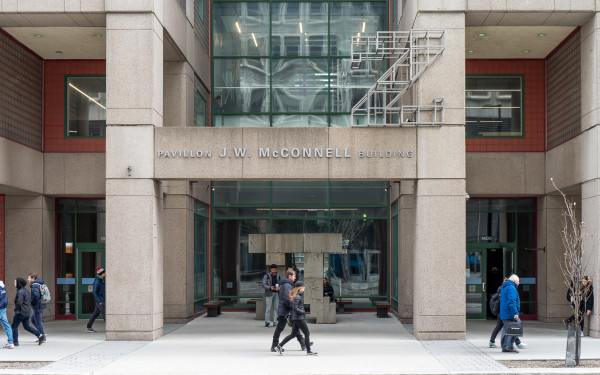Editorial: CSU Referendum Questions Misrepresentative, Lacked Transparency
Last week, from Tuesday through Thursday, the CSU held its by-election, which included a number of referendum questions that have been the subject of heated debate on campus (and Spotted: Concordia!) leading up to the results.
More than 5,000 students voted in the by-election, representing 16.6 per cent of eligible voters.
One of the questions posed to students related to the implementation of online opt-outs from the fee levies that fund student organizations.
Fee-levy groups that provide vital services to students, such as the healthy free lunch at the People’s Potato or the work we do here at The Link, rely on money from fee-levy collection on a per-credit basis.
In our offices, we discussed the misinformation and rumours we kept hearing about the increases—how much they would be, how they would be used, and even how much “greedy” student groups were supposedly already collecting.
As student journalists, we understand that the way you communicate matters. It changes how someone receives your intended message. The question regarding online opt-outs was phrased in such a way that it did not fully explain the extent of what implementing them would lead to.
The question mentioned online opt-outs, but not the potential massive loss of funding to student groups, which would in turn would lead to a loss of quality in the services they’re able to provide to people in need.
The situation student groups at McGill University currently face helps to illustrate the possible results of online opt-outs. McGill implemented online opt-outs in 2007, and since its implementation, student groups have suffered as a result. In particular, it was groups like radio station CKUT and social justice organization QPIRG, which exist independently from the student union, that bore the brunt of the financial hit of online opt-outs.
Without a student union to fall back on for funding, these groups lost thousands in the first year of online opt-outs and these losses continued for years. While the amount might seem small, often these make the difference between viability and unviability.
Paying a few cents to a couple of dollars may seem insignificant individually, but the sum of everyone’s contribution constitutes the funding that ensures the survival of student organizations.
The questions posed in the by-election relating to important issues could have been phrased with more clarity and context.
The loss of funding to student groups has serious and wide-ranging consequences, particularly for our community’s most marginalized. Picture a Concordia community with no access to affordable meals and groceries, no support for LGBTQ+ students or students with disabilities, and no green spaces and grassroots sustainability initiatives. Is that really a community you want to be a part of?
The administration has said they will not be implementing the option to opt out on the MyConcordia portal.
It’s important to note that individuals are not powerless here. You can write to the school explaining your disagreement and reiterating your support of fee levy groups on campus.


_600_832_s.png)


1_600_375_90_s_c1.jpg)

